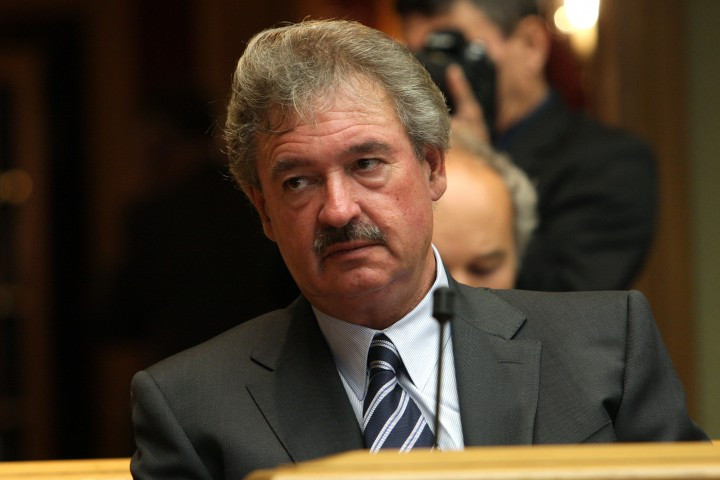The comments came during his annual foreign policy declaration in parliament on Tuesday 21 March.
Listing the numerous challenges Luxembourg and the EU face, he was more defiant than in previous declarations.
From populism to the flouting of the respect of the rule of law and democratic principles, Asselborn voiced his, by now, outspokenly critical views of events in certain EU member states and other countries such as Turkey.
Refugees and migrants
Asselborn continued to hammer home that a common European solution was needed to manage the migration and refugee crises. He defended the EU-Turkey deal, saying that fewer people arrive in Greece as a result, and people smugglers were less successful now. But he argued that, concerning applications for asylum to be dealt with in third countries, this would only work in collaboration with the UNHCR. He was sceptical whether this would work at all:
“Doing this from within camps, as they currently exist for example in Libya, is impossible. People live under inhuman conditions there. In that context I want to make clear that there is no safe place outside of the EU, where refugees, who have been saved in the west Mediterranean sea, can be sent back to.”
Further stressing that solidarity (financial and institutional) with Italy and Greece was essential in helping them deal with the management of the migration crisis, Asselborn regretted that the new proposals for a European asylum system, the creation of a European agency, the reform of the Dublin agreement and the redistribution of refugees were put on ice as member states could not agree on fundamental principles of sticking together.
“With Brexit there will be no winners”
Asselborn stated that the UK should not be punished for its sovereign decision to leave the EU, and that Luxembourg wanted to continue its good relations with the British. However, he emphasised that:
“We need to take care that the 27 member states, who want to stay together in the EU, do not pay the price for the decision of the British citizens, and that these countries are not in any way disadvantaged. It would be inacceptable if, at the end of these negotiations, we got off worse than the UK.”
The foreign affairs ministry takes control of the coordination of the negotiations between the PM’s political advisors in the “cellule diplomatique” and the Permanent Representation in Brussels through the interministerial committee on coordinating European policies.
All current EU rules, regulations and obligations will still apply to the UK as long as it has not left. One of the first points of negotiations will be the UK contributions to the EU budget--Asselborn stressed that the UK must fulfil all its obligations in the multiannual financial framework of 2014-2020:
“We must avoid Brexit ripping a too deep hole in the EU budget.”
Secondly, the rights of EU citizens living in the UK and Brits living in the EU must be safeguarded.
Thirdly, concerning the single market and financial services, Asselborn said that there must be a level playing field so that Luxembourg’s financial sector can stay competitive. London must keep the same or equivalent regulatory and prudential framework as Luxembourg-- and this needs to be adapted after Brexit.
Defend our interests with hands and feet
Asselborn said that:
“We have big interests to defend--and we will do that openly and fairly. But we will defend our positions with hands and feet. We won’t accept foul compromises, which would disadvantage our financial sector. No deal is better than a bad deal, said [the British PM] Theresa May in her speech on 17 January. No deal is better than a bad deal--the same goes for Luxembourg too.”
Asselborn promised that he would keep parliament informed on the Brexit negotiations.
Peer review mechanism for rule of law in EU
Concerning the respect of the rule of law in certain member states, Asselborn argued that the hurdles to trigger article 7 of the Lisbon treaty were very high and the sanctions severe. However, any other initiatives by the European Commission to redress the situation in Poland had been ineffective. Yet he suggested that the EU now needed adequate instruments to protect the principles of the rule of law. He called upon other governments to support the commission and the European Parliament, and show clearly that an EU member state cannot bend the separation of powers, press freedom or the independence of the judiciary to suit the ideology of a governing political party.
Luxembourg, Asselborn stated, supports the creation of a peer review mechanism in the council of the EU which would allow it to keep an eye about the rule of law in each member state.
